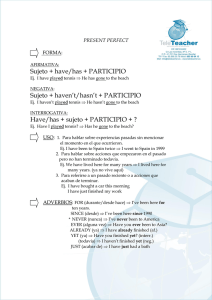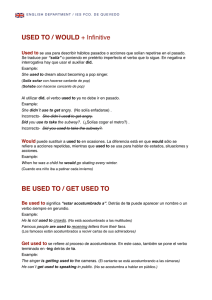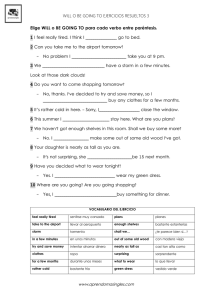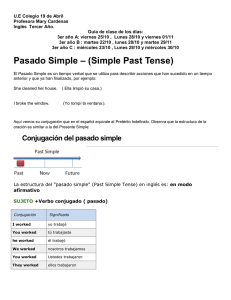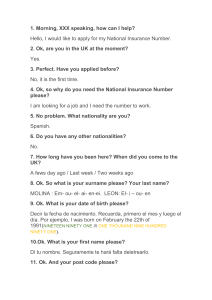FORMA: IF + PRES. SIMPLE + , + WILL (o modal) +
Anuncio
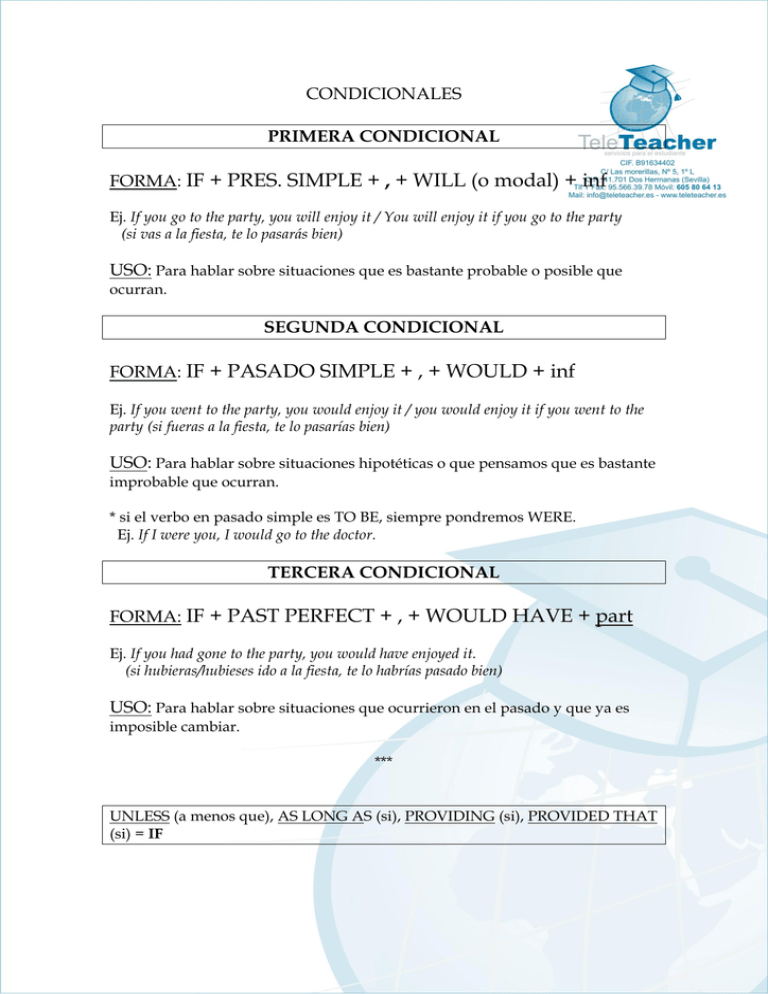
CONDICIONALES PRIMERA CONDICIONAL FORMA: IF + PRES. SIMPLE + , + WILL (o modal) + inf Ej. If you go to the party, you will enjoy it / You will enjoy it if you go to the party (si vas a la fiesta, te lo pasarás bien) USO: Para hablar sobre situaciones que es bastante probable o posible que ocurran. SEGUNDA CONDICIONAL FORMA: IF + PASADO SIMPLE + , + WOULD + inf Ej. If you went to the party, you would enjoy it / you would enjoy it if you went to the party (si fueras a la fiesta, te lo pasarías bien) USO: Para hablar sobre situaciones hipotéticas o que pensamos que es bastante improbable que ocurran. * si el verbo en pasado simple es TO BE, siempre pondremos WERE. Ej. If I were you, I would go to the doctor. TERCERA CONDICIONAL FORMA: IF + PAST PERFECT + , + WOULD HAVE + part Ej. If you had gone to the party, you would have enjoyed it. (si hubieras/hubieses ido a la fiesta, te lo habrías pasado bien) USO: Para hablar sobre situaciones que ocurrieron en el pasado y que ya es imposible cambiar. *** UNLESS (a menos que), AS LONG AS (si), PROVIDING (si), PROVIDED THAT (si) = IF

